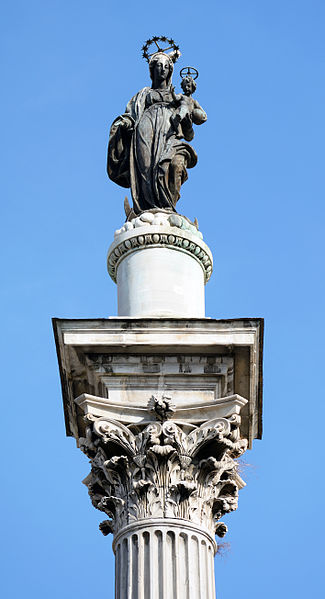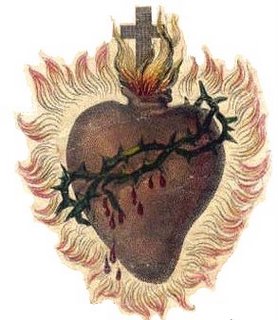The Nativity of the Lord (Christmas)
Mass during the Night
Lectionary: 14
IS 9:1-6
PS 96: 1-2, 2-3, 11-12, 13
TI 2:11-14
LK 2:1-14
And it happened that in those days a decree went out from Emperor Augustus that all the world should be registered. . . So Joseph also went from Galilee, from the city of Nazareth, up to Judea, to the city of David called Bethlehem, because he was descended from the house and family of David, to be registered with Mary.
The mention of Caesar Augustus at the beginning of the Christmas story is significant. Luke, certainly, has an affinity for history, and here the Emperor functions to ground the coming of Messiah in history. But there is also a sense in which Luke is intentionally juxtaposing the newborn Savior with the Emperor. Caesar Augustus is associated with the Pax Romana, the peace of Rome, which ushered in a lengthy time of peace and prosperity for the Roman Empire. But the mention of a census gives us some insight into what sort of peace Augustus offers. A census was used when a ruler “wished to certify the number of his subjects in order to have them better in his grasp for military or financial service” (Bovon, 83). The census is meant to testify to the Emperor’s power, both in that he orders it to be taken, and that it is for all the world. While we are dealing with an Emperor associated with peace, we should make no mistake what the foundation of this peace is: power, military might, and ultimately, fear. We know also that the Pax Romana was not necessarily a time of peace for the Jews. From the gospel perspective, we are certainly not meant to view Caesar Augustus with honor.
And yet Joseph and Mary are depicted acting obediently to the edict. They do not challenge Caesar Augustus’ authority. Indeed they cannot. They are powerless. So powerless that they are left without shelter on the night of the baby’s birth. The juxtaposition with Augustus is not one that justifies political revolt. A different sort of peace is coming.
Then an angel of the Lord stood before them, and they were filled with great fear. But the angel said to them, “Do not be afraid! For see, I am proclaiming to you good news, a great joy for all the people, for to you is born this day . . . the Savior, who is the Messiah, the Lord. . . And suddenly there was with the angel a multitude of the heavenly host, praising God and saying, “Glory to God in the highest, and on earth peace among people of good will.”
The angel’s tell us what different peace this newborn Messiah brings. It is God’s peace, also for “all the world,” but in this case, built not on power and fear, but on weakness, a little baby who we the reader know, is not destined to be anything Caesar Augustus would be alerted to in a daily security briefing.
“Do not be afraid!” the angel tells us. And indeed, that is the message of Christmas. Do not fear. There is nothing to fear. The political authorities of the world, all the Caesar Augustuses of all the ages, are not the source of our salvation, and the peace they offer is not a peace that we, the visitors at the manger, have any cause to desire. For us who kneel at the manger,
every boot that tramped in battle,
every cloak rolled in blood,
[has been] burned as fuel for flames.
We have a different sovereign Lord, this itty bitty baby, destined not to rule the nations with a yoke and rod, but with “judgment and justice.” And as Isaiah goes on to tell us
They name him Wonder-Counselor, God-Hero,
Father-Forever, Prince of Peace.
His dominion is vast
and forever peaceful
So what do we do after we kneel at the manger and prepare to return our own fields? First, we bring our Christmas joy with us, remembering that this joy is not for a day, but for a season. We keep celebrating that we are the people who “have seen a great light.” Second, we commit ourselves to the peace that Prince of Peace has ushered in, a peace that is marked by “the grace of God” that teaches us
to reject godless ways and worldly desires and to live temperately, justly, and devoutly in this age, as we await the blessed hope, the appearance of the glory of our great God and savior Jesus Christ,who gave himself for us to deliver us from all lawlessness and to cleanse for himself a people as his own, eager to do what is good.
Caesar Augustus’ pax is not our pax, and his empire is not our kingdom. Ours is breaking into this world slowly, but it has begun in the stable, as a mother cradles her newborn baby, and poor shepherds watch on, in quiet delight.




Trackbacks/Pingbacks